
Zebra Stone Gemstone: Properties, Meanings, Value & More
 Zebra stone (also called zebra rock or zebra jasper) is an opaque chalcedony whose name alludes to its distinctive, zebra-like stripes.
Zebra stone (also called zebra rock or zebra jasper) is an opaque chalcedony whose name alludes to its distinctive, zebra-like stripes.
Known as the “Stone of Being,” zebra jasper is a healing stone symbolic of grounding, protection, and balance. While mostly ornamental, zebra stone is a less-popular gemstone used in eye-catching jewelry designs.
Although millions of years old, there’s still much to discover about this bold and captivating stone.
You’ll soon find it hard to resist the allure of such a unique and striking stone once you lay your eyes on it. Intrigued to know more? Then you’re in luck!
Today, we’re reading between zebra stone’s lines as we uncover its properties, uses, history, pricing, and more in our Zebra Stone Guide.
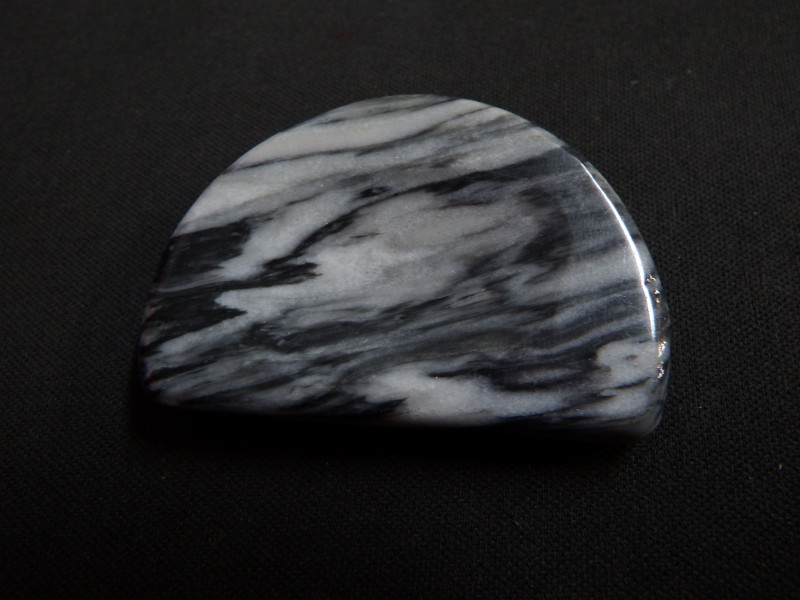
About Zebra Stone
Okay, so you’re familiar with zebra stone, but then what is zebra onyx? What is zebra agate? Are these all the same gems? Yep!
Zebra stone has a lengthy roster of nicknames, all referencing the same semi-precious gemstone. The most common ones you’ll find synonymously used are:
Zebra stone
Zebra rock
Zebra jasper
Zebra agate
Zebra marble
Zebra onyx
Zebra calcite
Zebra chalcedony
Despite its many commercial aliases, zebra stone’s pseudonyms are all an homage to its namesake animal: the zebra. After one look at the stone’s striped surface, you’ll find it’s aptly labeled.
Not surprisingly, the stone is most known for its strange-looking appearance featuring trippy, zebra-like banding along its surface.
While not a traditional zodiac stone, zebra stone is believed to support all twelve of the astrological signs. Similarly, it’s a powerful star stone for all the planetary signs.
In numerology, zebra stone also vibrates to the number 4.
What exactly does zebra stone look like? Its mineral traits will tell you all about zebra stone’s composition.

Zebra Stone Specifications & Characteristics
Zebra rock is mainly composed of fine-grained particles of quartz and sericite (fine-grained white mica), along with some alunite, kaolinite, and dickite. The stone belongs to the chalcedony family, which is why you’ll often see it marketed as “zebra agate” or “zebra jasper.”
As for its eclectic aesthetic, the stone typically features a background color of white, gray, greenish-gray, brown, or black, with regularly-spaced banding in contrasting color variations. Extending through the rock in parallel rows, the width of the bands varies depending on the thickness of the beds they originate from.
But how’d this zebra get its stripes? The jury is still out on the official origin story.
Some experts theorize it results from ferronematics (the suspensions of magnetic colloidal particles in a nematic liquid crystal). However, the leading hypothesis chalks it up to rhythmic precipitation of iron oxide (hematite) rich bands during the rock alteration by percolating fluids moving throughout.
Interestingly, zebra stone isn’t technically a mineral specimen. It’s more accurately siltstone (fine-grained sedimentary rock made of consolidated silt). Other siltstone deposits from the same area are:
ribbon stone
okapi stone
primordial stone
rainbow stone
astronomite
While chemically similar, these other siltstones show different patterns to zebra rock.
Here’s an overview of zebra stone’s mineral traits:
Chemical formula: SiO2
Composition: Silicon dioxide
Mohs hardness: 6.5 to 7
Color: Black, brown, white, beige, green, red
Crystal structure: Hexagonal
Luster: Vitreous
Transparency: Opaque
Refractive index: 1.54 to 1.55
Density: 2.58 to 2.91
Cleavage: Indiscernible
Fracture: Conchoidal
Tenacity: Brittle
Streak: White
Luminescence: Usually none, but can vary depending on impurities present
Pleochroism: None
Treatments: Not usually, but can be heat-treated to enrich colors
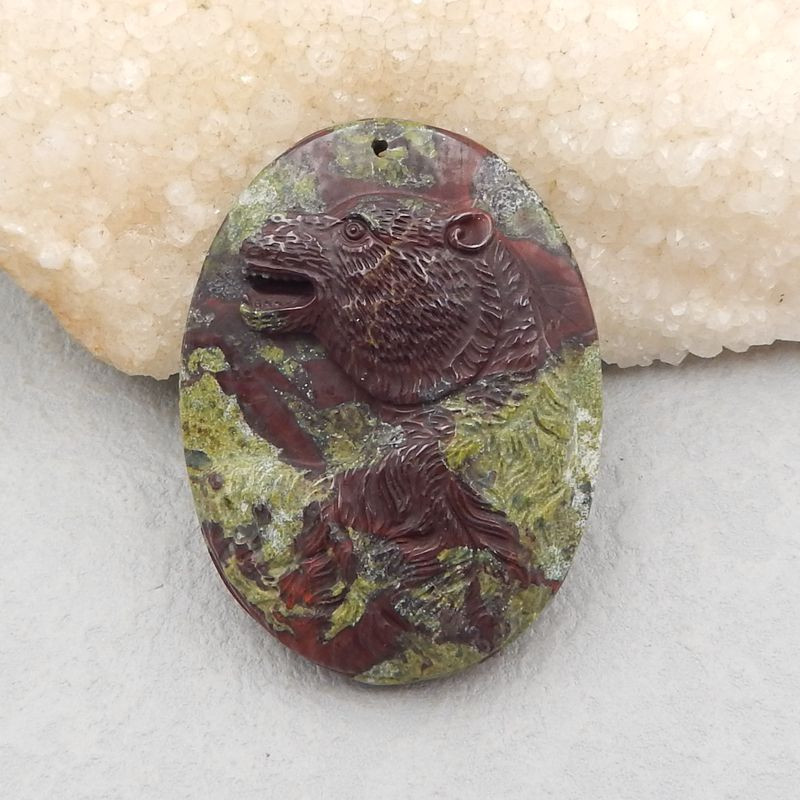 Pictured above: Dragon's Blood Jasper
Pictured above: Dragon's Blood Jasper
Zebra Jasper vs. Dragon’s Blood Jasper
As unmistakable as zebra stone is, brown variations are easy to mix up with its cousin, dragon’s blood jasper.
So what is dragon's blood crystal?
Dragon’s blood jasper hails from the same locality as zebra jasper. The main difference, besides their colors, is that dragon’s blood jasper actually isn’t a jasper at all.
Dragon’s blood crystals are made of two calcium aluminum iron sorosilicates: epidote (a green mineral) and piemontite (a red mineral).
Fun fact: Legend has it that dragon’s blood crystals are the petrified remains of dragons, hence their epic moniker.
Alright, back to zebra stone! Let’s shift gears and explore some of its mysterious histories.

Zebra Stone Meaning & History
There’s still much to be discovered about zebra stone and how it came to be, but most experts agree that it’s somewhere between 600 million to 1.2 billion years old.
Zebra stone is believed to have been officially discovered in 1924 by Australian geologist Torrington Blatchford near the old Argyle Downs homestead. The damming of the Ord River formed a large body of water known as Lake Argyle, which drowned the deposit along with several others. However, as luck would have it, enough seems to have remained above the water line to meet world demand for some time.
Its contrasting colors often connect zebra stone to the Chinese concept of yin and yang, describing opposite but interconnected life forces. The zebra stone’s black and white stripes symbolize the balance between these two opposing yet necessary forces.
Although opal is the national gemstone of Australia, many Aussie gem aficionados believe zebra stone’s vibrant stripes perfectly embody the colors and spirit of the outback.
Metaphysically, what is zebra marble good for?

Zebra Stone Healing Properties
You can harness the metaphysical properties of many gems and use them as potent healing stones for enhancing your physical, emotional, and spiritual wellness.
Zebra stone brings a powerful sense of balance and harmony to the chaos of daily life at all levels. Also known as the “Stone of Being” and the “Anti-Apathy Stone,” zebra jasper can be a powerful tool to add to your crystal repertoire as you reach for your dreams.
Physical Healing
Physically, what is zebra rock good for?
The high-powered crystal is considered ideal for pain management. Its energy may counteract muscle spasms and increase stamina, strengthening your ability for sustained physical activity.
Other physical ailments that zebra stone may remedy include:
Parasitic and fungal infections
Reproductive and gastric issues
Carpal tunnel and joint health
Bone and teeth strength
Emotional Healing
As the “Stone of Being,” zebra stone grounds you in the present moment. It quiets the mind of worry, putting you on a more straightforward path toward achieving your goals.
With a focus on positivity, zebra stone improves your mood, fosters optimism, and inspires compassion. The result? Less anxiety and more confidence to take action.
Who needs coffee when you’ve got zebra stone to give you a boost of go-getter energy?
Chakra Healing
You can use some gems as chakra stones to keep your energy centers balanced.
What chakra is zebra jasper?
Zebra stone’s yin and yang energies connect strongly to the root and crown chakras. Given that it’s the embodiment of opposing forces united, it makes sense that zebra stone serves as the bridge of energy between these opposite chakral points.
Balancing Energy
What does zebra marble do spiritually?
According to Feng Shui (the Chinese practice of balancing energy flow through designing spaces), zebra stone promotes balance and anchoring when placed in the center of a room. This area, known as the Bagua, is considered a neutral area ideal for expressing the balance of Yin and Yang.
Metaphysical properties? Check! Next up, grading.
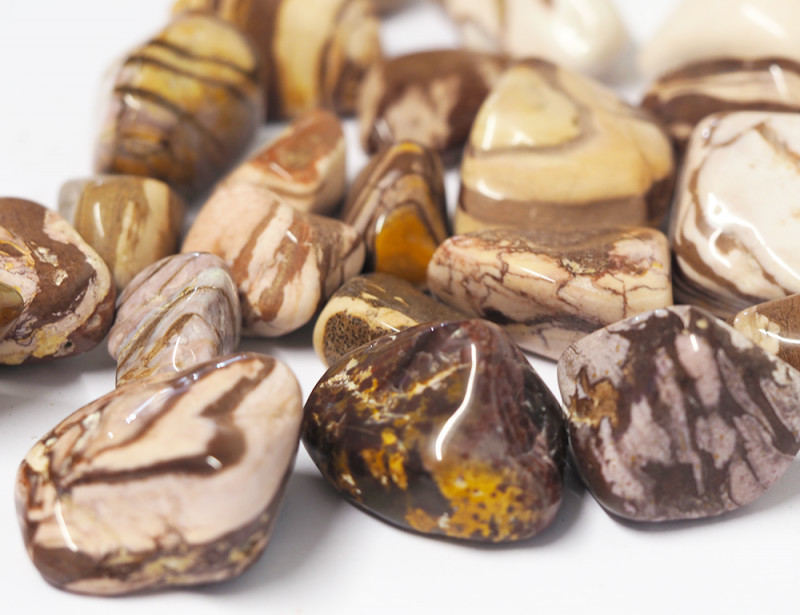
Zebra Stone Properties
All gems are appraised based on specific characteristics. For zebra stones, value is mainly determined according to color, cut, and size.
Color and Pattern
You already know that zebra stones commonly occur in assorting grays, whites, browns, or blacks with colorful stripes embellishing their surface. But zebra stones occur in other colors, like pink and green, too.
What is pink zebra stone? These brownish-pink zebra stones are a mix of jasper and quartz. Greyish-green zebra stones usually contain serpentine.
These colorful zebra stones are more expensive and harder to come by than the standard neutral-toned specimens. However, in all cases, the more striking the design, the higher the value.
Cut
Zebra stone registers 6 ½ to 7 on the Mohs Hardness Scale. This makes it a relatively easy stone to cut and polish.
The fine-grained, clay-rich siltstone is soft enough for precise cutting with hand tools and finished with ultra-fine, wet sanding. This produces a zebra stone with a silky smooth and glossy finish.
That being said, zebra stone is mostly used as an ornamental stone for carvings and some eclectic jewelry designs. It’s rarely faceted but can be found cut en cabochon to display its rich patterns better.
The stone is commonly sold in its rough, uncut form — polished or unpolished.
Size
Zebra stone typically occurs in large seam deposits. This makes large specimens widely available, especially for carving items such as vases, bowls, and sculptures.
Most specimens are marketed by standard mass measurements, such as grams, pounds, or kilos. Some retailers will forego advertising weight altogether and simply market their specimens by dimensions. It varies per seller.
On that note, how is zebra stone formed?
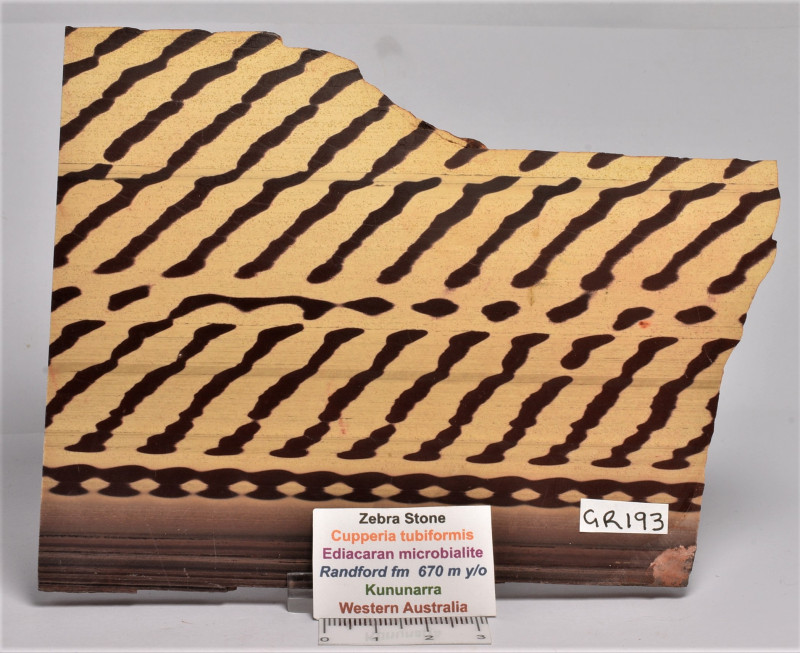
Zebra Stone Formation & Sources
Zebra stone forms by depositing very fine silt carried out by running water in small reef outcrops of stratified claystone or shale.
It’s then mined by creating a trench using an excavator, in which subsequent removal of the stone is taken in blocks and later sculpted or sold.
The kicker? Because of its locality’s wet season, it can only be mined for ten weeks during late October or early November. Otherwise, the zebra stone stays hidden underwater.
Speaking of which, where is zebra onyx found?
Mining Locations
Currently, zebra stone can only be found at several sites south of Kununurra, near Lake Argyle in Western Australia.
The mineral is only mined during the dry season and when demand dictates.
Now that you know where zebra stone is found, let’s review the price expectations for your new crystal.

Zebra Stone Price & Value
Although zebra stone mainly hails from a single locality, it’s not a rare stone to acquire. As a result, it’s pretty affordable. However, as with most gems, the bigger the zebra stone, the higher the price.
You’ll mainly see zebra stones for sale as rough specimens. They’re generally marketed in grams or pounds, selling for around $8 to $25 per pound. You can find lower-quality specimens for as little as $4 per pound.
Faceted zebra stone isn’t as common. These stones can run you between $0.25 to $0.80 per carat. Cabochons generally cost around $0.20 to $0.60 per carat.
The cost of zebra stone jewelry varies vastly per design. Rings can cost anywhere between $15 to $1900. Similarly, pendants and necklaces range between $10 to $1400, more or less. However, you can find assorted beaded zebra stone bracelets for as little as $10 to $100.
Zebra stone carvings like meditation towers, sculptures, and decorative figurines are also popular. Depending on intricacy and size, they can sell for anywhere between $15 to $2900.
To maintain zebra stone’s eclectic beauty, you’ll need to master how to care for your gemstones properly.
Zebra Stone Care and Maintenance
The best way to clean your zebra stone is with warm, soapy water and a soft cloth or bristle brush. Scrub it gently, rinse, and dry it thoroughly before wearing it.
Store your zebra stone in a cool, dry place away from prolonged heat or harder gems.
For safekeeping, avoid your zebra stone coming into contact with:
High heat exposure
Prolonged sun exposure
Abrasive chemicals or detergents
Ultrasonic or motorized cleaners
Harder gems and minerals
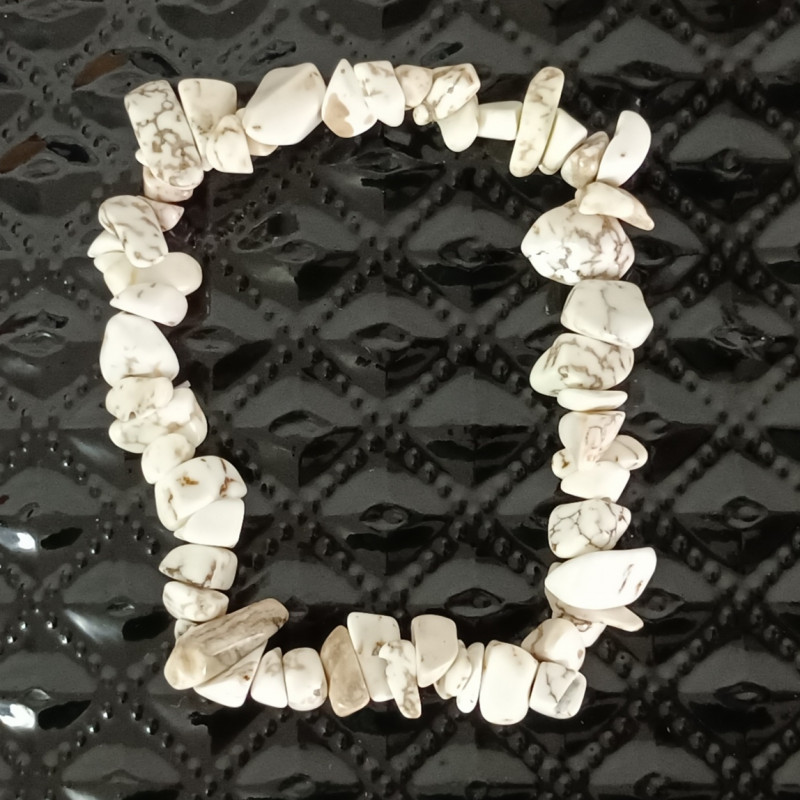
Go Bold with Zebra Stone!
What is the purpose of zebra jasper? That’s entirely up to you!
Zebra stone’s grounding energy and balancing vibrations make it a handy stone to keep near. It’s also the perfect way to experiment with a bold accessory that looks as cool as the energy it evokes. Dare to go bold with zebra stone!
Search the Gemstone Encyclopedia
Related Auctions
Related Articles
Everyone has a gemstone that corresponds with their star sign. These are also known as your Star Stone. Learn more about these stones and find out what your Star Stone is.
10th May 2018
Originally the Birthstones or gemstones were associated with a zodiac sign or the month of a individuals birth. Find out what your stone is and view the stones we have for sale
8th Feb 2021
There are so many tools on the market for testing a gemstone, but what are the main tools required for simple analysis. Lets look at four tools for gemstone testing.
4th Mar 2020
Latest Articles
Yugawaralite is a rare colorless, white, or pinkish zeolite crystal named for its discovery in Yugawara, Japan. Here we uncover the multifaceted history, properties, prices, and uses of yugawaralite.
24th Mar 2025
Simpsonite is a lesser-known mineral known on the gem market for its durability, yellow-orange color, and rarity. Discover all the properties, uses, prices, and history of simpsonite.
3rd Mar 2025
Kurnakovite is a colorless crystal related to inderite and rarely faceted but known among collectors. Explore the mineral traits, history, prices, and more in this kurnakovite guide.
17th Feb 2025
Article Categories
How To's is where you will find helpful articles from gem Rock Auctions on how to cut gemstones, select gemstones and buy gemstones.
9 Articles





